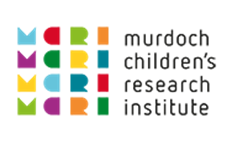Importance of ‘stacking’ early years services recognised by SA Royal Commission into ECEC
- Published
- Monday, September 11, 2023 - 12:00 PM
Restacking submitted a response to the South Australian Royal Commission into Early Childhood Education and Care, and many of our submission priorities were recognised in the final report, including the importance of ‘stacking’ multiple evidence-based services in the early years to improve outcomes in the first 1000 days.
About the South Australian Royal Commission into ECEC
The South Australian Royal Commission into Early Childhood Education and Care released its final report on 27 August, 2023.
The report sets out a considered and comprehensive plan for delivering a connected early childhood development system in South Australia. The report also makes comment and recommendations on changes needed at a national level. It provides a valuable resource to inform design and implementation of early years reforms across Australia.
RSTO priorities and the Commission
We are delighted to see that the Commission called out Restacking the Odds (RSTO) research as providing ‘compelling evidence about the benefit of stacking multiple evidence-based services in the early years, in particular antenatal care, nurse home visiting, early childhood education and care, and parenting programs, to improve outcomes for children in the first 1000 days.’
The key elements of the early childhood development system identified by the Commission and the strong focus throughout the report on providing integrated and connected services reflect this finding. We are also pleased to see a strong focus on equity, with the Commission emphasising need for a ‘universal but not uniform’ approach that delivers more to those who need additional support.
The findings draw on evidence presented by Professor Goldfeld and material from our submission and research, which was also referenced in depth in the Commission’s interim report.
Key recommendations in relation to ECEC include:
- Providing 15 hours of preschool for all 3 and 4 year olds and up to 30 hours of preschool for the 1000 children each year who are most developmentally vulnerable (around 5% of children).
- Steps to ensure universal uptake of preschool, including investment to reduce indirect costs and provide community outreach, informed by better use of region-level enrolment data.
- Investment in additional preschool capacity directed to quality services and those that have a demonstrated ability to enrol children from hard-to-reach or vulnerable communities.
- A new preschool funding model that includes funding sufficient to meet professional learning needs and loadings for provision of layered supports.
- Monitoring participation and attendance of vulnerable cohorts in ECEC in the first 1000 days, once measures to reduce the burden on staff and services are addressed.
- Support for quality teaching in ECEC including funding to support additional planning time and access to professional learning and a fund to increase workforce supply in ECEC.
On the wider child development system, recommendations include:
- Establishment of a new integrated child development data system and investment in world-class evidence and translation into practice
- Creating regular opportunities for connection between service providers working with families with young children in local areas, making integrated services the default for new early years services, identifying cost-efficient models to support service connection and integration, and building a community of practice for integrated service provision.
- Leveraging ECEC to reduce developmental vulnerability including connecting families to other services to respond to developmental concerns and ensuring linkages between child and family health services and ECEC services.
- Place-based commissioning of new integrated service hubs in areas of high developmental vulnerability
- Locally based implementation teams to commission places for vulnerable children; create connection between services; and translate evidence of best practice.
Restacking the Odds is a collaboration between the Centre for Community Child Health at the Murdoch Children's Research Institute, Bain & Company and Social Ventures Australia.
RSTO would like to acknowledge the support of project partners the Paul Ramsay Foundation and Seer Data.
We acknowledge the Traditional Owners of the land on which we work and pay our respect to Elders past, present and emerging.




